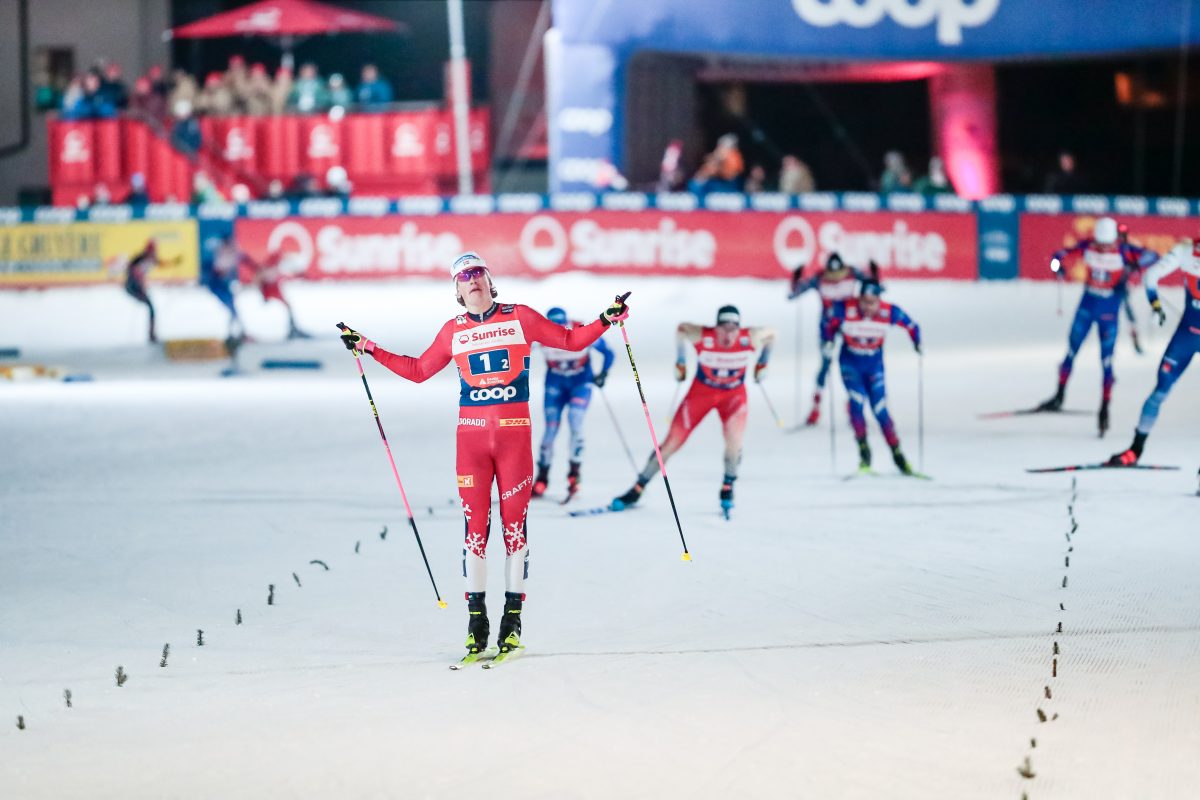
American hopes for a medal in the men’s 10k biathlon sprint fell about as hard as the snow did in the middle of today’s race.
25 minutes into the event, the steady drizzle that came down throughout the morning morphed into a wild snow squall, slowing the skiing drastically and effectively squashing the chances of anyone still on course.
The medalists in the race—France’s Vincent Jay, Norway’s Emil Hegle Svendsen, and Croatia’s Jakov Fak—all were among the first ten starters, the winners of what U.S. Head Coach Per Nilsson called a “lottery.”
“Independent of what wax you had, you had no chance,” Nilsson told FasterSkier. “Wet, aggressive, new fallen snow—that’s the slowest you can get.”

Most of the top men were seeded at the front of the race, but anyone who had to ski through more than a couple of minutes of the heavy snow had an insurmountable task before them.
American Jeremy Teela, in bib number thirteen, was probably the last one to escape: despite two penalties, he still placed ninth.

Burke was not so lucky. He had clean tracks for his first of three 3.3k laps, and looked to be in decent position after a single penalty in the prone stage. But by the time he came back around for the standing, the squall had set in with full force. He missed two more shots, and ended up in 47th—barely qualifying for Tuesday’s pursuit.
The effect of the snow was epitomized by Jay Hakkinen’s performance. Despite not missing a single shot, the Alaskan had to set out in the worst of it, and ended up over three minutes back from the French winner.
“It’s just mountain weather,” he said. “I just went out to fight as hard as I can. It’s frustrating, but the good thing is I held it together in the shooting.”

Lowell Bailey, the fourth American starter, faced the same brutal conditions. He also shot clean, but still finished back in 36th. All four Americans made it into the top-60, guaranteeing themselves positions in Tuesday’s pursuit.
Canada’s lone competitor, Jean Philippe Leguellec, got lucky by drawing the eighth starting spot, then maximized the opportunity by missing just one shot, in the standing. He actually led the race after the first shooting stage, but slowed by the penalty loop, ended in sixth.
After a week of hype, the weather at Whistler Olympic Park finally delivered today, with a huge impact on the outcome of the race. But Nilsson still didn’t see a problem with hosting such important races at a venue known for its erratic weather.
“This was, unfortunately, pretty extreme,” he said. But still, “it can happen everywhere.”

Nathaniel Herz
Nat Herz is an Alaska-based journalist who moonlights for FasterSkier as an occasional reporter and podcast host. He was FasterSkier's full-time reporter in 2010 and 2011.



